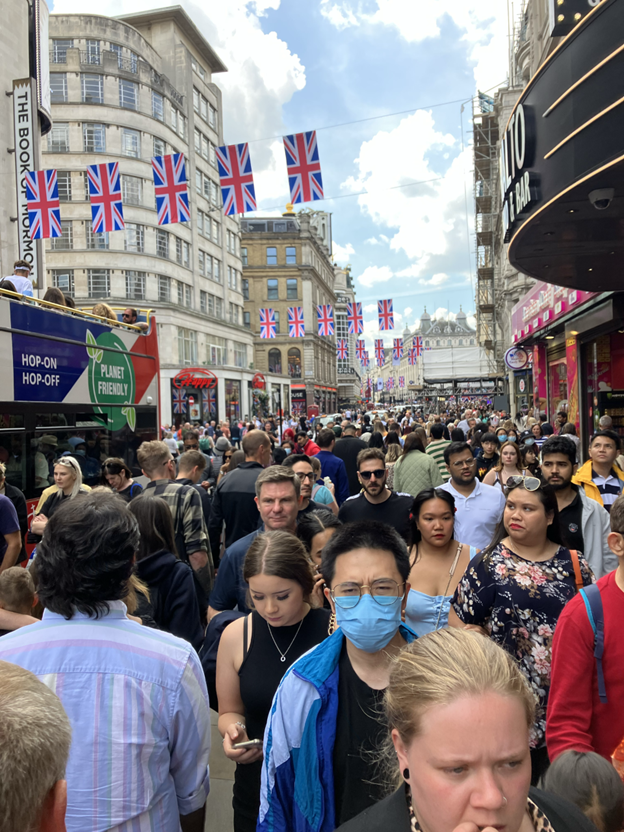After spending a few days in both London and Stratford-Upon-Avon, it has become obvious that both cities are deeply involved in their histories. When looking at a map of London, you can rarely go much farther than a few blocks before finding either a historical site or a museum. History is engrained into a majority of the buildings in London as well as all of its people. On Thursday, June 2nd, I was walking through Piccadilly Circus with some of my classmates when we noticed that everyone around us had stopped and looked to the sky. A line of helicopters, jets, bombers, and other aircraft paraded across the sky for approximately 5 minutes. The entire time, people on the street cheered and celebrated. This was all to celebrate the Queen’s Platinum Jubilee. Along with the flyover, there was a parade, and thousands of people packing the streets of London in celebration. This celebration represents how important history is to the people of London. Even though the Queen is largely ceremonial in the modern-day, the people of England still celebrate it.
The importance of history can also be seen while exploring Stratford-Upon-Avon. From Shakespeare’s Birthplace to the Royal Shakespeare Company to the Shakespeare ice cream boat, Shakespeare’s life has ingrained itself into the town. All around, people are exploring Shakespeare’s past through his old homes, his plays, and even his burial site. The history of England is still very much apparent within its cities no matter the size. The people of England embrace their history and display and celebrate it to its fullest.

